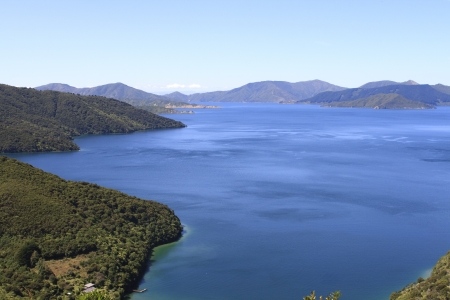Manuka Helping Protect New Zealand Waterways
October 01, 2017
In New Zealand, where the growing of Manuka has become all the rage as demand for honey grows around the world, recent research indicated that Manuka may do more than just provide the world with rich, high-quality specialty honey. The Manuka bush, once thought of decades ago as a weed to be eradicated from pastures on site, could potentially reduce the effects of farming on nearby waterways—always a concern given the impacts fertilizer and animal waste can have on water. The latter can also have the effect of adding more nitrogen to the soil than it can handle.
The country’s Plant & Food Research Institute participated in a collaborative program, headed by Brett Robinson, a professor with the University of Canterbury, and the results of this research led to the discovery that the soil surrounding Manuka trees, after applying considerable amounts of animal urea, had much less nitrate compared to that of other trees, specifically radiata pines. The researching team planted both young Manuka and radiata in lysimeters, which are containers used for measuring evapotranspiration and drainage.
The team fertilized the soil for 15 weeks with the maximum urea rate for pasture, 200kg per hectare, before applying an amount equal to 800kg a hectare into every pot, simulating urine patches. Researchers measured the soil for its emissions of nitrous oxide and took drainage samples as well, finding less nitrous oxide escaped from Manuka soil than from radiata soil. They also discovered only 2kg of nitrates per hectare drained out of the Manuka pots—compared to the radiata pines’ 53kg per hectare.
In the past, New Zealand farmers have used radiata for supplementary crops, but, with log prices decreasing and Manuka honey markets growing, Manuka trees may currently be the better option as supplementary crops, with the reduced nitrogen leachate and improved downstream water conditions being another benefit for planting Manuka. These results may yet contribute to the country’s mounting interest in integrating native plant species into agricultural systems to protect waterways and support biodiversity. This once invasive weed could be extremely effective in preventing runoff.
"Manuka…seems to have an inhibiting effect on the microbes in the soil that mediate the nitrogen cycle," Dr. Craig Anderson, who works for Plant & Food Research, said. These microbes promoting the nitrogen cycle convert urea into ammonia, ammonia into nitrites, nitrites into nitrates, and then nitrates to nitrogen gases. Cutting down these microbes’ activity in soil robs other plants of nitrogen, which gives Manuka the competitive advantage compared to other plants in lower quality soil. This study also indicated Manuka responded better to the urea applications, growing more vigorously and thereby making it a very beneficial supplementary crop.
According to Professor Robinson, the next phase will be examining these effects in field trials. Four sites are being set up in New Zealand, and there the researchers will test the various benefits Manuka may have for water protection.
Copyright: hofmeester / 123RF Stock Photo


.jpg)




